Film Name: 長安的荔枝 / The Lychee Road / The Litchi Road
I’m definitely late to the party when it comes to watching the movie “The Lychee Road,” and I haven’t read Ma Boyong’s original work or watched the recent TV adaptation either… In any case, I missed out on the freshest lychee, but at least the color, aroma, and flavor are still there, and it’s still worth savoring.
In short, this is undoubtedly a compelling film, featuring costumes, props, and settings that pay homage to the prosperous Tang Dynasty, as well as meticulous details that recreate modern workplace and traditional bureaucratic environments. It captures the glorious moments and bittersweet laughter and tears of working-class individuals, while also conveying the compassion and hardships of those who worry about the nation and its people.
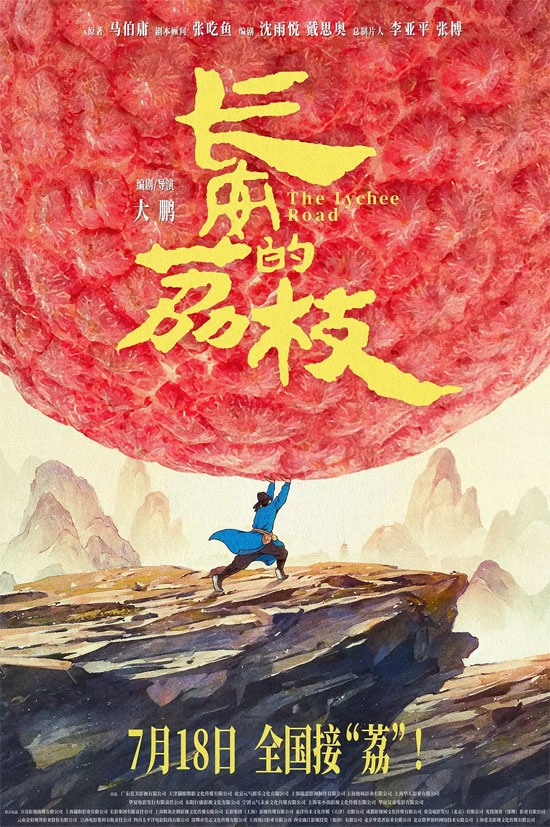
Dapeng, who serves as director, screenwriter, and lead actor, is undoubtedly the film’s greatest contributor—I’ve praised him numerous times in recent years, whether as a director (“The Reunions,” “Post Truth,” “One and Only”) or as an actor (“Dust To Dust,” “Johnny Keep Walking!”). At least in the aspects he’s responsible for, there have been no missteps, and he’s delivered solid results.
In “The Lychee Road,” I am even more impressed by Dapeng’s consistently high standards and stable performance. Though he may not be an outstanding cinematic genius, the film’s exceptional quality suggests he has begun to master the craft… which is why I find myself thinking, “If only we had more filmmakers like Dapeng.”
[Friendly reminder: The following text contains spoilers.]
In my opinion, the greatest strength of “The Lychee Road” is its clear logic and smooth narrative. Even though the pacing between the beginning and the middle and end sections is not ideal, it does not have much of a negative impact on the solid main storyline, so the film feels quite smooth and natural.
The first part of the film can be viewed as a Tang Dynasty version of “Johnny Walk the Dog.”
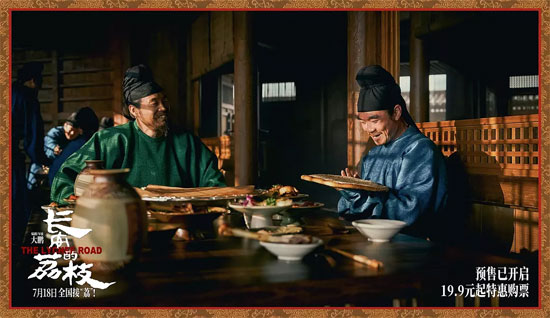
This is not only because the trio of Dapeng, Bai Ke, and Zhuang Dafei has reunited, but also because the portrayal of Li Shande in the early stages is a contemporary take on the “Chang’an Drifter.”
The film employs a wealth of modern character designs, workplace jargon, and internet memes to immerse the audience in Li Shande’s grueling working-class world: a small-town scholar by background, he wasted his youth at the Shanglin Bureau, worked diligently for years to finally take out a loan to buy an apartment, and frequently worked 996-hour weeks, while his colleagues slack off all day, his superiors find him too rigid in his work, and he never gets the good or lucrative assignments—only the dangerous ones that are sent to him as a scapegoat.
When he was assigned to be the lychee envoy, Li Shande himself felt something was off, thinking, “The pie is too big to eat,” but the fantasy of fortune turning and hard work paying off still made him eat the pie—until he realized it was his last meal.
The opening of “The Lychee Road” is a bit forced, but it excels in its accessible language and a small, detailed entry point, making it easy to get into the story.
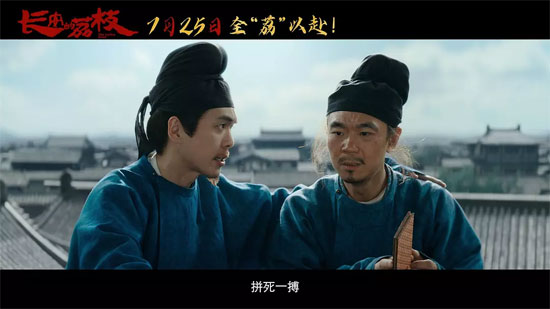
Delivering fresh lychees from Lingnan to Chang’an for the Empress’s birthday celebration was an impossible task from the start. The sensible approach would have been to either abandon the mission quickly or accept one’s fate and wait for death…
But Li Shande was a stubborn man with no connections, so the film begins its gradual ascent into the middle section.
This section is the most compelling part of the film, blending the vastness of a commoner’s perspective on the world with the tension of how the chaos of a prosperous era affects ordinary people.
Specifically, Li Shande begins to analyze, deconstruct, and experiment with the feasibility of the “impossible mission.” He first travels alone to Lingnan in a month, experiencing firsthand the vast distances and regional differences. When official channels prove unfeasible, he turns to grassroots efforts, gradually increasing the feasibility of transporting the lychees step by step.
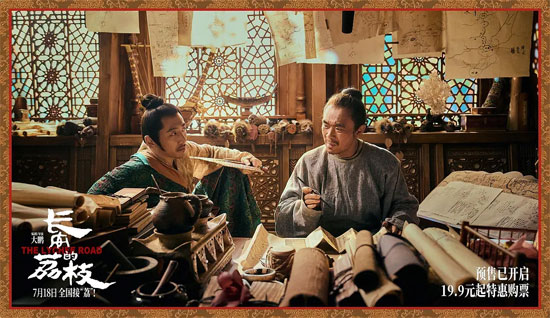
Such scenes, which focus solely on rational experimentation without considering external factors, have always been highly engaging.
During this process, Li Shande fully utilized his expertise in actuarial science and, with the generous investment from Su Liang, “developed and improved” a Tang Dynasty version of the Gantt chart and calculation tables.
This period was also the most grounded phase of Li Shande’s life, as he started from a position with no room for retreat and no support. Any progress, no matter how small, was an achievement. “Even if I fail, I want to know how far from the finish line I will fall.”
At the same time, Li Shande formed friendships with Su Liang, who “talked business but made true friends,” and A Dong, who “preferred making friends over discussing business,” leaving no regrets.
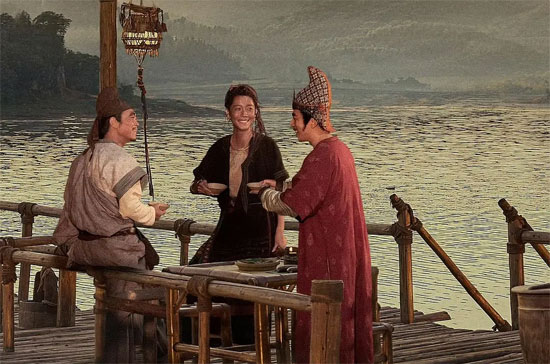
The turning point in the middle of the film also arrives as expected here—when the task of transporting lychees is doomed to fail, Li Shande does everything he can to move forward, but when there is a real chance of success, the previously invisible environmental factors come into play, causing a reversal or even a complete upheaval.
First, the departments that should have cooperated with Li Shande began to pass the buck, and higher-ups even launched an investigation into him under the pretext of corruption and dereliction of duty. Essentially, this was because Li Shande, who did not understand the principle of “many hands make light work,” lacked the awareness to share credit, while Yu Chaoyin sought to take credit for himself.
Then, Yang Guozhong, who had been closely monitoring the situation, openly intervened, granting Li Shande a “Guozhong” medal, which granted him the authority to expedite matters across all levels of departments.
By this point, the transport of lychees was no longer merely about satisfying the Emperor and the Empress Consort’s cravings; it had become entangled in the power struggle between Yu Chaoyin and Yang Guozhong, as well as the upper echelons’ schemes to exploit the people under various pretexts.
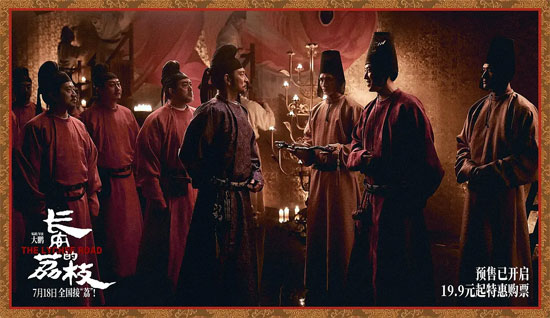
It’s laughable that Li Shande is still fixated on transporting fresh lychees, unaware that the nature of the entire affair has never been what he imagined it to be.
The cinematography and narrative direction of “The Lychee Road” undergo a noticeable shift in this segment, gradually transitioning from showcasing the vastness and prosperity of the Tang Dynasty to exposing the arbitrary abuse of privilege and the wasteful exploitation of the people.
Therefore, when I watched Li Shande in the middle and latter parts of the story, besides feeling pity and admiration for him, I also felt some resentment and disapproval: he was a talented official and a commoner who empathized with the suffering of the people, but his simplicity and learning became accomplices in exacerbating their suffering.
Li Shande’s strength was his ability to calculate (being realistic), but his weakness was that he only knew how to calculate (having no other concerns) — —When he held great power, he took his meticulous calculations to the extreme, replacing the relatively slow merchant caravans with official express delivery services, and all the cart drivers, boatmen, and station attendants along the way had to obey his commands. As for the costs involved in achieving all this, that was not something Li Shande needed to consider.
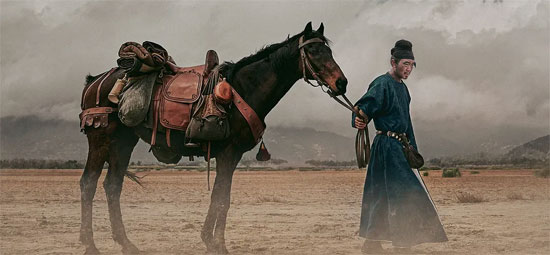
Li Shande was not a fool, but outside of his professional duties, he was somewhat lacking in common sense. On his journey south, he clearly saw many displaced civilians and peasants suffering under forced labor. He also discovered through actual expenditure that transporting lychees required an enormous amount of resources. If he had fully understood the cost of achieving this “impossible task,” he would not have been so devastated at the end.
Of course, this cannot be blamed on Li Shande; he was merely trying to survive in a desperate situation. The blame lies with the emperor’s whims and the arbitrary actions of the powerful ministers…
However, objectively speaking, Li Shande’s outstanding professional abilities did indeed play a role in aiding and abetting the tyrant. From a purely results-oriented perspective, this capable official was even less reliable than other mediocre officials.
Thus, when I saw Li Shande riding alone into the palace to deliver lychees, scattering cotton blossoms along the way, my emotions were quite complex. The tragedy in his character far outweighed any heroism, and the fleeting romantic imagery only served to heighten the somber atmosphere.
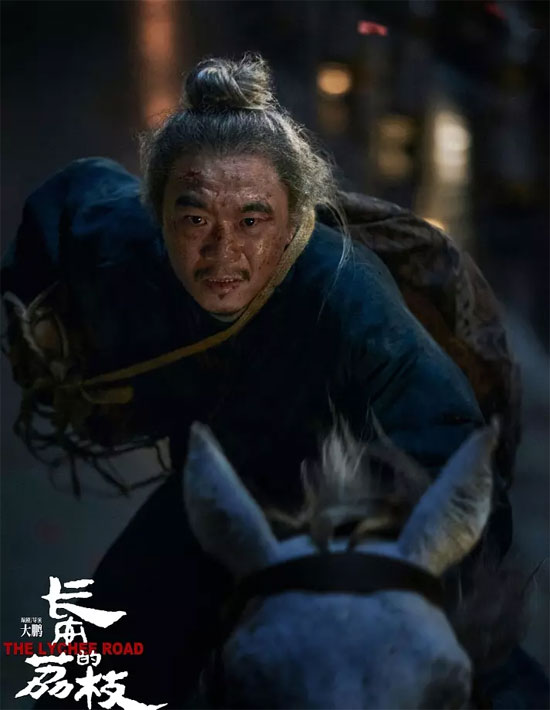
The An Lushan Rebellion that erupted shortly thereafter had nothing to do with Yang Guozhong’s plans to establish a permanent lychee envoy or impose additional taxes and corvée labor, but it aligns perfectly with the “The Lychee Road” concept of seeing the bigger picture through small details.
When those few lychees were placed among many other fruits, and it remained unknown whether the Empress Consort ever ate them, a single silent shot spoke volumes.
Please specify:Anime Phone Cases » The Lychee Road 長安的荔枝 2025 Film Review: It would be great if there were more creators like Dapeng